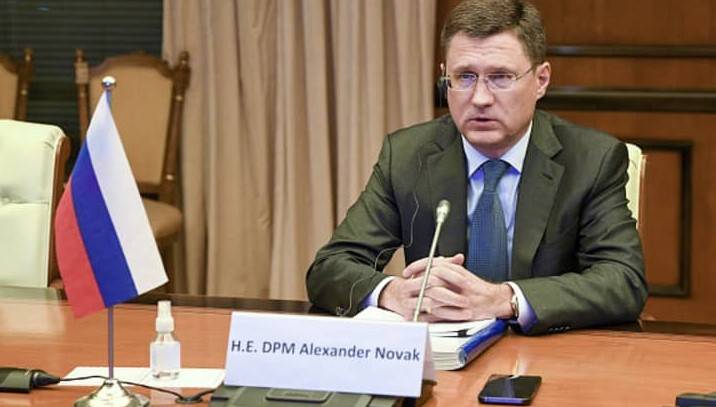Russia warns oil price may top $300 per barrel
Threatens to cut off European gas if West bans energy imports: UK, Germany, Netherlands back away from Western embargo on Russian energy exports

Stay tuned with 24 News HD Android App

Russia has threatened to close a major gas pipeline to Germany and warned of $300 oil prices if the West goes ahead with a ban on its energy exports.
Russian Deputy Prime Minister Alexander Novak said Monday in an address on state television: “It is absolutely clear that a rejection of Russian oil would lead to catastrophic consequences for the global market.”
“The surge in prices would be unpredictable. It would be $300 per barrel if not more.” Novak also cited Germany’s decision last month to halt the certification of the highly contentious Nord Stream 2 gas pipeline, saying: “We have every right to take a matching decision and impose an embargo on gas pumping through the Nord Stream 1 gas pipeline.”
“So far, we are not taking such a decision,” Novak said. “But European politicians with their statements and accusations against Russia push us towards that.”
His comments come with Russia’s onslaught of Ukraine well into its second week, with the already dire humanitarian crisis expected to worsen as the Kremlin continues its invasion.
The UN has said 1.7 million refugees have left Ukraine since Russia’s invasion of the country began on February 24, describing it as “the fastest-growing refugee crisis in Europe since World War II.”
The US has been considering whether to impose a ban on Russia’s oil and gas exports as a way of punishing Moscow.
Germany, the Netherlands and the UK have appeared to back away from a coordinated Western embargo on Russian energy exports, however.
Energy analysts have warned that a ban on Russia’s oil and gas would have seismic repercussions for energy markets and the world economy.
Russia is the world’s third-largest oil producer, behind the US and Saudi Arabia, and the world’s largest exporter of crude to global markets. It is also a major producer and exporter of natural gas.
The European Union receives around 40% of its gas via Russian pipelines, several of which run through Ukraine.
“European politicians need to honestly warn their citizens and consumers what to expect,” Novak said. “If you want to reject energy supplies from Russia, go ahead. We are ready for it. We know where we could redirect the volumes to,” he added, without providing further details.
Oil prices soared to 14-year highs, as energy market participants focused on the prospect of full sanctions on Russia’s energy exports.
International benchmark Brent crude futures rose 2.1% to trade at $125.75 a barrel on Tuesday morning in London, while U.S. West Texas Intermediate futures were 2% higher at $121.83.
European policymakers are under immense pressure to bring a swift end to their dependence on Russian fossil fuels, particularly as energy-importing countries continue to refill President Vladimir Putin’s war chest with oil and gas revenue on a daily basis.
Indeed, revenue from Russian oil and gas was seen to be responsible for roughly 43% of the Kremlin’s federal budget between 2011 and 2020, highlighting how fossil fuels play a central role for the Russian government.–CNBC
